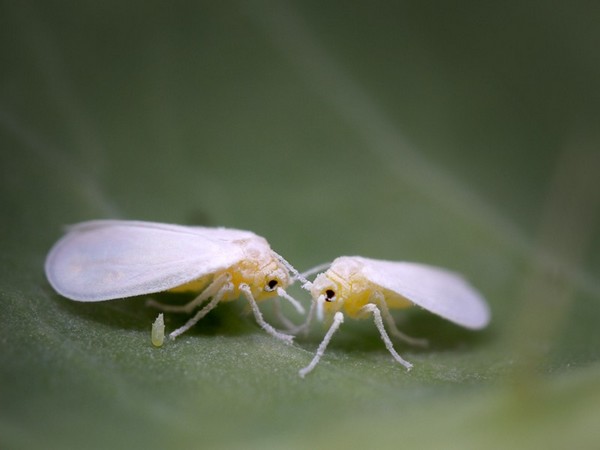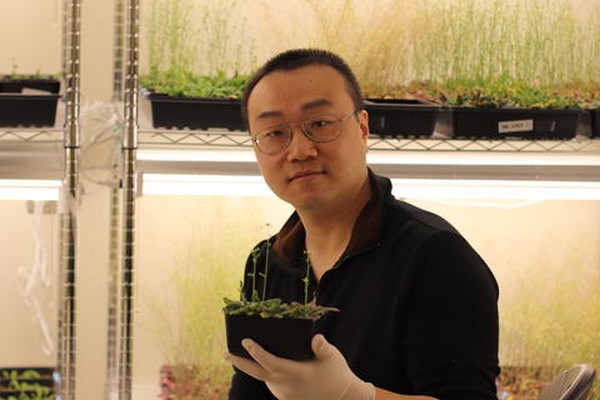A pernicious agricultural pest owes some of its success to a gene pilfered from its plant host millions of years ago. The finding, reported today in Cell1, is the first known example of a natural gene transfer from a plant to an insect. It also explains one reason why the whitefly Bemisia tabaci is so adept at munching on crops: the gene that it swiped from plants enables it to neutralize a toxin that some plants produce to defend against insects.
Early work suggests that inhibiting this gene can render the whiteflies vulnerable to the toxin, providing a potential route to combating the pest. “This exposes a mechanism through which we can tip the scales back in the plant’s favor,” says Andrew Gloss, who studies plant–pest interactions at the University of Chicago in Illinois. “It’s a remarkable example of how studying evolution can inform new approaches for applications like crop protection.”
The diminutive whitefly — which is more closely related to aphids than to flies — wreaks agricultural havoc around the world. Bemisia tabaci is among the most destructive plant pests: whiteflies sup sugary sap from hundreds of types of plant, all the while excreting a sticky, sweet substance called honeydew that serves as a breeding ground for mould. Whiteflies are also vectors for more than 100 pathogenic plant viruses.
Stolen genes
That some species of whitefly could owe part of their predatory prowess to genes from other organisms is not entirely surprising, because genetic thievery is common in the arms race between plants and their pests. Over millions of years, plants and insects alike have borrowed heavily from microbial genomes, sometimes using their newly acquired genes to develop defensive or offensive strategies.
Some insects, such as the coffee berry borer (Hypothenemus hampei), have plundered microbial genes to extract more nutrition from hard-to-digest plant cell walls2, and a wild relative of wheat has pilfered a fungal gene to fight off a fungal disease called head blight3. But plants and insects were not known to steal from each other before now.
Read the complete article at www.nature.com.









